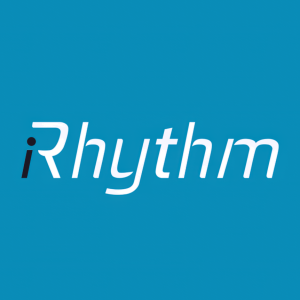iRhythm Technologies Announces Japanese Regulatory Approval of the Zio® ECG Monitoring System, the First Product to Deliver Arrhythmia Monitoring Service Utilizing Artificial Intelligence
Rhea-AI Summary
iRhythm Technologies (NASDAQ:IRTC) has received Japanese regulatory approval for its Zio® ECG Monitoring System, marking a significant milestone in the company's global expansion. The Zio system, which offers 14-day continuous ECG monitoring, is the first in its category to receive approval in Japan without a clinical trial. Key points include:
- Zio previously received a high medical needs designation in Japan
- Japan is the world's second-largest medical device market
- An estimated 1.6 million cardiac monitoring tests are prescribed annually in Japan
- iRhythm will now work towards securing reimbursement for market access
- The Zio system utilizes advanced AI algorithms for arrhythmia detection
This approval positions iRhythm to address the growing need for improved cardiac arrhythmia diagnostics in Japan's aging population.
Positive
- Received Japanese regulatory approval for Zio ECG Monitoring System
- First product in its category to receive approval without a clinical trial
- Previously received high medical needs designation in Japan
- Potential access to world's second-largest medical device market
- Estimated 1.6 million cardiac monitoring tests prescribed annually in Japan
- AI-powered system with high diagnostic performance similar to cardiologists
Negative
- Still needs to secure reimbursement approval for market access in Japan
- Faces competition from established Holter monitoring technology in Japan
News Market Reaction 1 Alert
On the day this news was published, IRTC gained 3.34%, reflecting a moderate positive market reaction.
Data tracked by StockTitan Argus on the day of publication.
- Zio ECG monitoring system is the only fourteen-day cardiac monitoring service in its category to receive Japanese regulatory approval as an improved device without a clinical trial
- Zio ECG monitoring system previously received Japanese high medical needs designation, a unique distinction reflecting positive recommendation by the Japanese Heart Rhythm Society (JHRS)
- iRhythm will continue working towards reimbursement to enable market access in Japan, the world’s second largest medical device market
- Japan is the second largest ambulatory cardiac monitoring market in the world with an estimated 1.6 million tests prescribed annually – a number that is expected to continue to increase1-3
SAN FRANCISCO, Sept. 11, 2024 (GLOBE NEWSWIRE) -- iRhythm Technologies, Inc. (NASDAQ:IRTC), a leading digital health care company focused on creating trusted solutions that detect, predict, and prevent disease, announced today that it has received regulatory approval from the Japanese Pharmaceutical and Medical Device Agency (PMDA) for the Zio® fourteen-day, long-term continuous ECG monitoring system. With regulatory approval in hand, iRhythm intends to work towards a reimbursement decision for the Zio ECG monitoring system with the Japanese Ministry of Health, Labour, and Welfare (MHLW).
Zio long-term continuous monitoring (LTCM) service consists of a prescription only patch ECG monitoring device (Zio monitor) worn for up to 14 days and the ZEUS (Zio ECG Utilization Software) System (iRhythm’s advanced AI algorithm) that generates a comprehensive end-of-wear report reviewed and curated by certified cardiographic technicians. The Zio system represents a significant advancement in cardiac arrhythmia diagnostics compared to traditional Holter monitoring4 and is designed to deliver high clinical accuracy to help enable doctors in making the right diagnosis the first time. iRhythm’s deep learning approach can classify a broad range of distinct arrhythmias with high diagnostic performance similar to that of cardiologists and, in clinical settings, this service could reduce the amount of misdiagnosed computerized ECG interpretations and improve clinical efficiency.5
“With the strong support from our partners at the Japanese Heart Rhythm Society, we are thrilled to receive this approval from the Japanese PMDA as a testament to iRhythm’s commitment to innovation and the highest standards of quality and performance,” said Quentin Blackford, iRhythm President and Chief Executive Officer. “We are very grateful for their diligent review of our Shonin application as we seek to drive better health outcomes and more equitable access for patients around the globe. We look forward to continuing working closely with the MHLW during their market access and reimbursement review of the Zio service.”
The Zio system was previously designated for high medical needs by the MHLW, a rarely bestowed distinction in Japan that is granted to innovative devices recognized as having high medical utility for significant diseases. The Zio system was indicated for this designation at the recommendation of the JHRS based on the clinical improvements that the Zio services provide compared to traditional Holter monitoring4,5 and the significant need that patients in Japan face to improve detection of potential cardiac arrhythmias.
Japan is the second largest ambulatory cardiac monitoring market in the world with an estimated 1.6 million tests prescribed annually1 – a number that is expected to continue to increase based on stroke and cardiovascular disease burden in an aging population2,3. However, Japanese patients are forced to use Holter monitoring, the traditional standard of care, as patch-based technology, like the Zio service, has not been adopted.
Since the company’s inception, iRhythm has posted over 8 million patient reports and amassed a repository of approximately 1.8 billion hours of curated ECG data7. Zio monitor, Zio XT, and Zio AT (mobile cardiac telemetry) systems are currently available in the U.S., and Zio XT system is available in the UK. Additionally, iRhythm recently announced the commercial launch of Zio monitor in Austria, the Netherlands, Spain, and Switzerland. iRhythm has signed a letter of intent with a distribution partner in Japan and is actively collaborating with them to prepare for market launch once reimbursement is approved by the MHLW.
About iRhythm Technologies, Inc.
iRhythm is a leading digital health care company that creates trusted solutions that detect, predict, and prevent disease. Combining wearable biosensors and cloud-based data analytics with powerful proprietary algorithms, iRhythm distills data from millions of heartbeats into clinically actionable information. Through a relentless focus on patient care, iRhythm’s vision is to deliver better data, better insights, and better health for all. To learn more about iRhythm, including its portfolio of Zio products and services, please visit irhythmtech.com.
Investor Contact
Stephanie Zhadkevich
investors@irhythmtech.com
Media Contact
Kassandra Perry
irhythm@highwirepr.com
- Irie S, Tada H. The Relationship between Holter Electrocardiography and Atrial Fibrillation Diagnosis Using Real-World Data in Japan. Int Heart J. 2023;64(2):178-187.
- Matsuda S. Health Policy in Japan - Current Situation and Future Challenges. JMA Journal, 2019.
- Annual Pharmaceutical Production Statistics, Ministry of Health, Labour, and Welfare (“MHLW”).
- Barrett P. et al. Comparison of 24-hour Holter monitoring vs. 14-day novel adhesive patch electrocardiographic monitoring. American Heart Journal of Medicine, 2014.
- Hannun, AY. et al. Cardiologist-level arrhythmia detection and classification in ambulatory electrocardiograms using a deep neural network. Nature Medicine, 2019.
- Turakhia, M. et al. Diagnostic Utility of a Novel Leadless Arrhythmia Monitoring Device, American Journal of Cardiology, 2013.
- Data on file. iRhythm Technologies, 2024.








